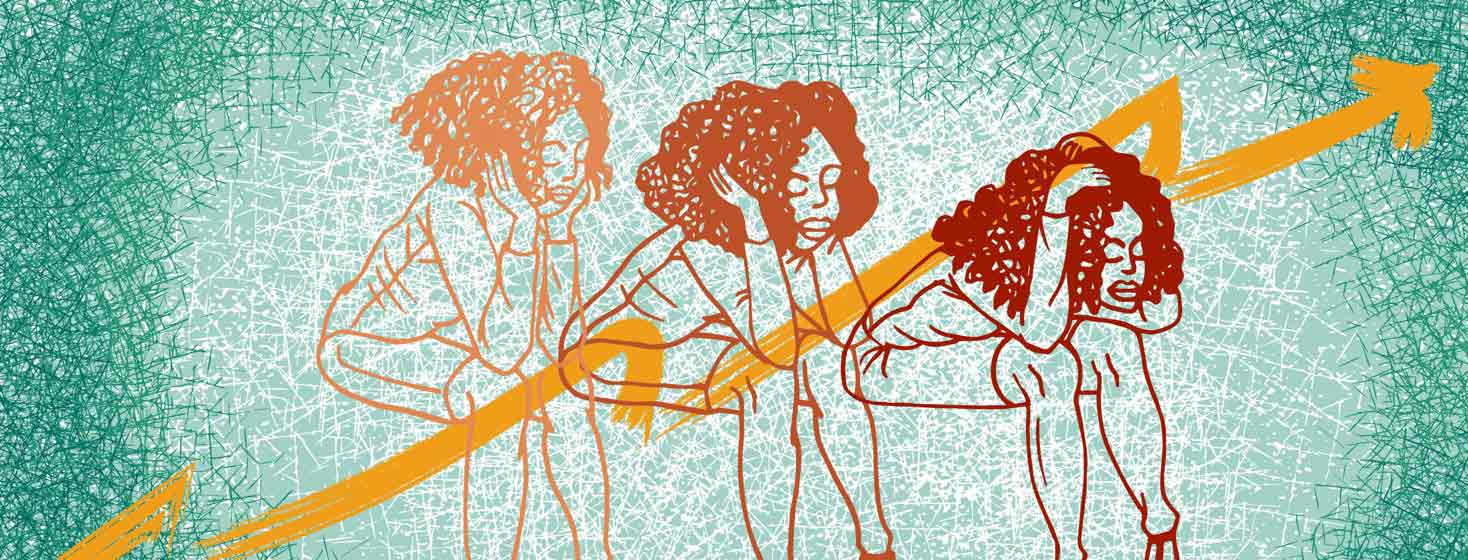Can Stigma Affect Viral Load Control in African American Women with HIV?
Stigma can be a complicated and damaging experience for those who feel its effects. When someone is stigmatized, it means they are experiencing misjudgment, stereotyping, or negative attitudes from someone else as a result of one of their physical appearance, personal characteristics, or health, to name a few.
HIV-related stigma and discrimination
Due to decades of misinformation, there still remains rampant stigma associated with HIV. When stigma leads someone to treat another individual negatively, it’s called discrimination.
Stigma and discrimination can look like being denied a job or housing because of your status, losing a friendship due to having HIV, and more. Stigma can come in many forms and can have negative impacts on a person’s mental, emotional, physical, and social health.1
How does stigma affect HIV treatment or care?
Specifically, HIV-related stigma may impact treatment adherence and the ability or desire to seek healthcare. It may also lead to lower rates of HIV testing or prevention, as well as other issues that may be related to worse health outcomes.2-4
One group that is thought to be especially impacted by stigma and worse HIV outcomes is African American women in the United States. African American women are thought to be more likely to start ART (antiretroviral therapy) late, stop treatment early, and have a higher risk of experiencing health-related complications.5
A research study on stigma and health outcomes
A group of researchers performed a study in order to investigate stigma and its effects on HIV-positive African American women to see if some of these health outcomes may be related to stigma. The study involved over 230 adult African American women currently taking ART for their HIV at two healthcare facilities in Chicago, Illinois, and one facility in Birmingham, Alabama.
Each participant went to six visits at their healthcare facility over a 14-month period. Results from the study were published in the journal, AIDS. Every time participants went for a visit, they were given several questionnaires to fill out.
Enacted and internalized stigma
One questionnaire was the Stigma Scale for Chronic Illness (SSCI) which asked questions about different forms of enacted and internalized stigma. Enacted stigma refers to times when a person experienced real-life examples of discrimination or prejudice, such as times someone was unkind to them because of their HIV. Internalized stigma refers to the personal feelings and beliefs that develop as a result of stigma, such as feeling embarrassed about having HIV.
Those with higher scores on the questionnaire were thought to have experienced more stigma. Participants also received questionnaires asking about their social support and levels of depression, since these are also thought to play a role in some health outcomes.
Higher stigma scores and negative health outcomes
Overall, the study found that African American women with higher stigma scores were more likely to have higher rates of depression, less social support, and were more likely to miss doses of their medications.
Also, those with higher scores were more likely to have higher viral loads and were less likely to be virally suppressed (having very low amounts of virus in their blood, also called being undetectable).
Levels of social support and depression were not directly related to viral load in this study, however, levels of stigma were. Specifically, as the amount of stigma increased (according to scores on the SSCI), so did the viral load. This suggests some African American women who are living with HIV are experiencing a lot of stigma and this high amount of stigma may be directly affecting their health and HIV control.
Reducing stigma through programs
More research needs to be done to determine stigma’s true effects on African American women and their HIV care. However, the research team concluded that these results show that programs to reduce stigma, especially among healthcare workers, need to be developed and encouraged since they may have a positive impact on HIV-related health outcomes.5

Join the conversation